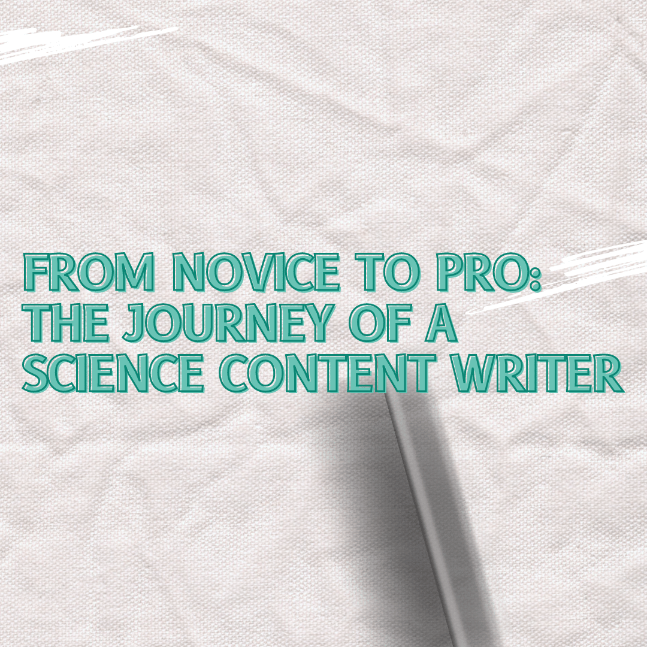From Novice to Pro: The Journey of a Science Content Writer

The leap from a beginner to a professional science content writer is a journey filled with learning, persistence, and passion for science. Science writing, a niche that demands accuracy, clarity, and the ability to make complex topics understandable, is not just for scientists. Anyone with a keen interest in science and a flair for writing can embark on this rewarding career path. This article outlines key steps and strategies to transform from a novice to a professional science content writer.
Understanding the Fundamentals of Science Writing1. Build a Strong Foundation in Science
- Educational Background: A degree in a scientific field can be beneficial, but it's not a strict requirement.
- Continuous Learning: Stay updated with scientific trends and research through journals, podcasts, and seminars.
2. Master the Art of Writing
- Writing Courses: Consider courses in journalism, creative writing, or technical writing to hone your skills.
- Practice Regularly: Writing regularly on various scientific topics helps in developing a clear and concise writing style.
Developing Your Unique Voice and Style1. Read Extensively
- Immerse yourself in a range of science writing, from popular science books to academic papers. Analyze the writing styles of renowned science writers like Carl Sagan or Rachel Carson.
2. Find Your Niche
- Specialize in a specific field of science that fascinates you. This could be anything from astrophysics to biotechnology.
3. Experiment with Different Formats
- Try writing articles, blogs, white papers, and even scripts for science podcasts or videos.
Enhancing Research and Fact-Checking Skills1. Develop Research Skills
- Learn to navigate scientific databases and understand research methodologies to source accurate information.
2. Fact-Check Rigorously
- Verify every fact you include in your writing. Misinformation can damage credibility.
Building a Portfolio and Gaining Experience1. Start a Science Blog
- Create a blog to showcase your writing. This serves as a practical portfolio for potential clients or employers.
2. Freelance and Internships
- Seek freelance writing opportunities or internships in science writing to gain real-world experience.
3. Network
- Attend science writing workshops and conferences. Networking with professionals can lead to valuable opportunities and mentorships.
Leveraging Social Media and Online Platforms1. Social Media Presence
- Platforms like LinkedIn, Twitter, and ResearchGate can be used to share your work and connect with the science writing community.
2. Online Publishing Platforms
- Publish your articles on platforms like Medium or Scientific American Blogs to reach a wider audience.
Continual Learning and Adaptation1. Feedback and Improvement
- Be open to feedback and use it constructively to improve your writing.
2. Stay Adaptable
- The field of science is ever-evolving. Adapt your writing to the changing landscapes of science and media.
Transitioning from a beginner to a professional science content writer requires dedication, continuous learning, and a deep-seated passion for science. By honing your writing skills, developing a unique voice, building a robust portfolio, and staying adaptable, you can make your mark in the world of science writing. Remember, every expert was once a beginner; your journey to becoming a pro science content writer starts with your commitment to embark on this learning curve.
You may also like…



